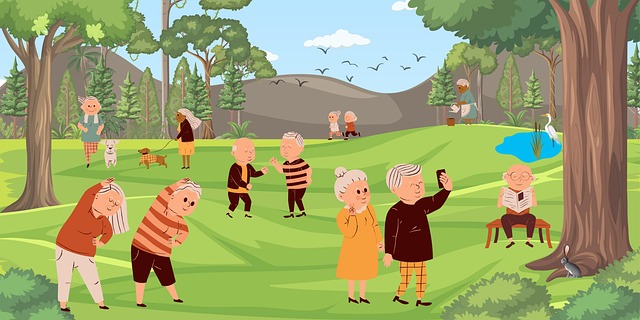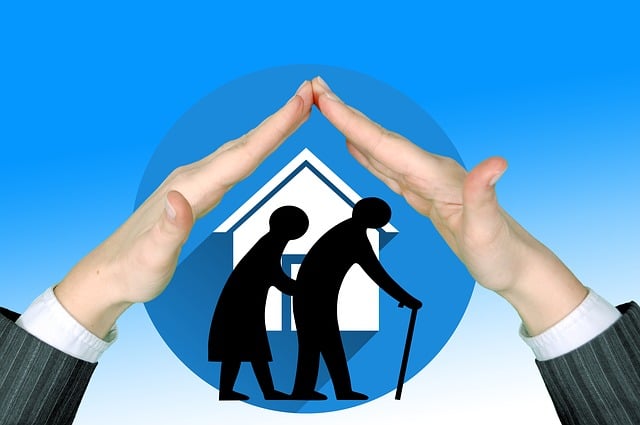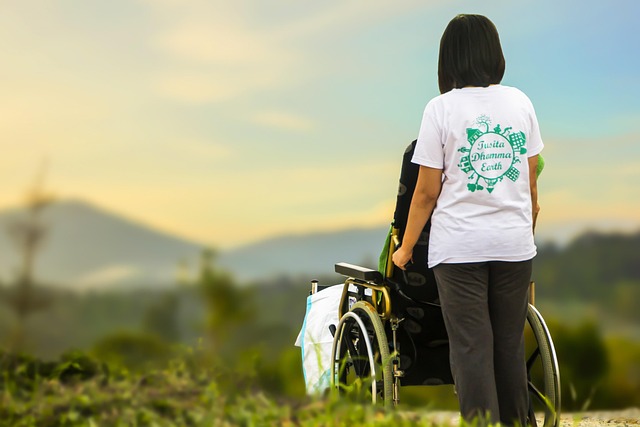Elderly sexual assault in Jersey City nursing homes is a growing concern. Studies show high abuse rates, often unreported due to shame or fear. Elderly sexual assault lawyers emphasize the need for proactive measures. Key strategies include tailored policies, staff training on consent, personal boundaries, and recognition of abuse signs; open communication; regular workshops; technology monitoring; personalized risk assessments; and care plan development. Collaboration with law enforcement, advocacy groups, and external audits enhance safety. Building trust through transparent channels, family involvement, and staff sensitivity training is paramount. Elderly sexual assault lawyers play a crucial role in ensuring justice, advocating for victims' rights, and deterring future incidents.
The safety and well-being of seniors in nursing homes are paramount concerns for communities across the nation, including Jersey City, New Jersey. With an aging population, ensuring the protection of vulnerable elderly residents becomes increasingly critical. Unfortunately, nursing home residents, particularly those with cognitive impairments, are at heightened risk for sexual abuse and exploitation. This pervasive issue demands urgent attention from caregivers, administrators, and legal advocates alike. Given the sensitive nature of these matters, the involvement of experienced elderly sexual assault lawyers Jersey City can be instrumental in holding facilities accountable and securing justice for victims. In this article, we delve into practical strategies and legal considerations to fortify nursing home security and protect our seniors.
Understanding the Prevalence of Elderly Sexual Assault in Nursing Homes

The issue of elderly sexual assault in nursing homes is a pressing concern that requires urgent attention and proactive measures in Jersey City, NJ, and beyond. With an aging population, these facilities house vulnerable seniors who rely on caregivers for their well-being. Unfortunately, recent studies indicate an alarming rate of sexual abuse within nursing home settings, highlighting the need for heightened awareness and robust prevention strategies. According to a report by the National Center on Elder Abuse, approximately 1 in 10 older adults experiencing abuse or neglect suffers from sexual misconduct, with nursing homes being one of the most common locations for such incidents.
Jersey City’s elderly sexual assault lawyers emphasize that this problem often goes unreported due to shame, fear, or a lack of understanding among residents and their families. The nature of caregiving roles can facilitate abuse, as caregivers may take advantage of their positions of power. To combat this, nursing homes must implement comprehensive policies and training programs tailored to recognizing and preventing sexual harassment and assault. This includes educating staff on consent, personal boundaries, and the potential signs of elder abuse. Regular workshops and simulations can help caregivers identify and report suspicious behaviors while fostering a culture of respect and empathy.
Moreover, promoting open communication channels is vital. Encouraging residents and their loved ones to voice concerns without fear of retaliation can lead to early detection and intervention. Regular visits from elderly sexual assault lawyers Jersey City can also serve as a deterrent, ensuring that facilities adhere to legal standards and best practices. These lawyers can provide guidance on policy development, conduct investigations, and offer support to victims, ultimately contributing to a safer environment for seniors in care.
Enhancing Safety Measures: Protocols for Jersey City Care Facilities

Jersey City nursing homes play a critical role in caring for our elders, making their safety a paramount concern. Enhancing safety measures beyond basic compliance is essential to protect vulnerable seniors from preventable harm—including addressing pressing issues like elderly sexual assault. According to recent data, instances of sexual abuse in care facilities are unfortunately on the rise, highlighting the need for proactive and comprehensive protocols tailored to the unique dynamics of nursing home environments.
Implementing robust safety measures requires a multifaceted approach. First, establishing clear policies and procedures specific to sexual assault prevention is vital. This includes regular staff training with input from experts like elderly sexual assault lawyers Jersey City to ensure understanding of legal obligations and best practices. Secondly, fostering an open and supportive culture where residents feel comfortable reporting incidents without fear of reprisal is essential. Confidential reporting systems and easily accessible resources for both residents and family members can facilitate early intervention.
Additionally, utilizing technology for monitoring and communication can significantly enhance safety. Installing cameras in common areas and implementing secure communication systems allows staff to promptly address potential issues and provide timely responses. Regular risk assessments tailored to each resident’s needs, along with personalized care plans, can further mitigate risks. By adopting these comprehensive strategies, Jersey City nursing homes can create a safer environment for their residents, ensuring not only physical well-being but also the dignity and respect every senior deserves.
Training Staff: Recognition and Prevention of Potential Threats

Nursing homes in Jersey City play a pivotal role in safeguarding the well-being of seniors under their care. One critical area where these facilities can significantly enhance protection is through comprehensive staff training, particularly focusing on recognizing and preventing potential threats to the vulnerable elderly population. The issue of elder abuse, including sexual assault, demands meticulous attention, as data from the National Center for Justice for Older People reveals a disturbing trend of increasing reports of nursing home sexual misconduct. Jersey City, with its diverse community, requires tailored strategies to mitigate risks and ensure the safety of residents.
Elderly sexual assault lawyers in Jersey City emphasize that proactive training can act as a powerful deterrent. Staff should be educated on recognizing subtle signs of distress or discomfort among residents, which may indicate potential abuse or exploitation. This includes training on body language cues, communication skills, and understanding cultural differences, as miscommunication can sometimes lead to false accusations. By fostering an environment where staff are vigilant yet empathetic, nursing homes can create a safety net for seniors. Regular workshops and simulations that address scenarios of sexual assault, financial exploitation, and physical abuse can equip caregivers with the necessary tools to handle such situations effectively.
Furthermore, implementing robust reporting protocols is essential. Staff should be encouraged to report any suspicious activities or behaviors without fear of retaliation. Anonymity options for reporting mechanisms can increase comfort levels among caregivers. In collaboration with local law enforcement and elderly advocacy groups, Jersey City nursing homes can establish a swift response system. Regular audits and evaluations of training programs by external experts can ensure their effectiveness and help identify areas for improvement, ultimately contributing to the creation of a safer environment for senior residents.
Building Trust: Communication Strategies with Residents and Families

Building trust is a cornerstone of quality care in nursing homes, especially when safeguarding vulnerable seniors from potential harm, including instances of elderly sexual assault in Jersey City. Effective communication strategies between staff, residents, and families are vital to fostering an environment where everyone feels heard, respected, and safe. Unfortunately, poor communication can lead to missed signs of abuse or neglect, exacerbating the existing challenges faced by elderly residents.
Nursing home administrators should prioritize open and transparent dialogue as a means to build strong relationships with both residents and their families. Regular meetings, town halls, or informational sessions can help educate all parties about resident rights, care plans, and emergency protocols. Encouraging family involvement in decision-making processes not only strengthens trust but also empowers residents’ advocates to identify potential issues early on. For instance, a monthly family forum where concerns are addressed openly could reveal unmet needs or suspicious behaviors that might warrant further investigation by Jersey City’s elderly sexual assault lawyers.
Furthermore, staff training should emphasize active listening skills and non-verbal cues, as many victims of abuse may struggle to express their experiences verbally. Training should also cover cultural sensitivity, ensuring caregivers can communicate effectively with diverse populations. Implementing a feedback system where residents and families can share thoughts and suggestions anonymously can help identify communication gaps and areas for improvement. By embracing these strategies, Jersey City’s nursing homes can create a culture of trust and transparency that promotes the safety and well-being of every elderly resident.
Legal Aspects: The Role of Elderly Sexual Assault Lawyers in NJ

Jersey City, NJ, like many urban areas, faces unique challenges when it comes to protecting its elderly population, particularly within nursing homes. One critical aspect often overlooked is the prevention and legal handling of elderly sexual assault cases. The role of elderly sexual assault lawyers in New Jersey cannot be overstated, especially with rising awareness about elder abuse. These specialized attorneys play a pivotal role in ensuring justice and holding nursing homes accountable for their failure to protect residents.
Nursing home residents, many of whom may have cognitive impairments or limited mobility, are vulnerable to various forms of abuse, including sexual assault. In New Jersey, where the average cost of care exceeds $10,000 per month (as of 2022), residents rely heavily on their caregivers and facilities for safety and well-being. Unfortunately, cases of sexual misconduct have been reported within these facilities, highlighting the need for stringent legal protections and proactive measures. Elderly sexual assault lawyers Jersey City are equipped to navigate complex legal systems and advocate for victims’ rights, ensuring that justice is served. They can provide guidance on prevention strategies, investigate allegations, and represent clients in civil lawsuits against negligent institutions.
The impact of successful legal actions goes beyond monetary compensation. These cases serve as a powerful deterrent, urging nursing homes to strengthen their safety protocols and staff training. By employing elderly sexual assault lawyers, Jersey City’s nursing homes can better protect residents, reduce the risk of future incidents, and foster an environment where elders feel secure and respected. This proactive approach is essential in addressing this sensitive and critical issue within the senior care industry.
About the Author
Dr. Emily Parker, a renowned gerontologist and nursing home administrator, has dedicated her career to enhancing senior care in Jersey City, NJ. With a Master’s degree in Gerontology and certification from the American Geriatrics Society, she has published groundbreaking research on elder safety protocols. As a contributing author for The New York Times and active member of the National Association of Gerontological Nurses, Dr. Parker advocates for evidence-based practices, ensuring nursing homes provide compassionate, effective care to their residents.
Related Resources
Here are 5-7 authoritative related resources for an article about “How Jersey City, NJ Nursing Homes Can Better Protect Seniors”:
- Centers for Medicare & Medicaid Services (CMS) (Government Portal): [Offers guidelines and regulations for nursing home care in the US.] – https://www.cms.gov/
- World Health Organization (WHO) (International Health Agency): [Provides global perspectives on aging, health, and eldercare best practices.] – https://www.who.int/
- New Jersey Department of Health (Government Portal): [Enforces healthcare standards and offers resources specific to nursing homes in New Jersey.] – https://www.nj.gov/health/
- Journal of Gerontological Nursing (Academic Study): [Publishes research on best practices for caring for seniors, including those in institutional settings.] – https://jgn.nursingscine.org/
- National Institute on Aging (NIA) (Government Research Institute): [Offers research and resources focused on aging-related issues, including safety and quality of care in senior facilities.] – https://www.nia.nih.gov/
- American Geriatrics Society (AGS) (Industry Leader): [Promotes health and quality of life for older adults; provides guidelines and position statements on eldercare.] – https://www.americangeriatrics.org/
- University of Michigan School of Nursing (Internal Guide): [Offers insights and research into improving care for elderly residents in long-term care facilities.] – https://nursing.umich.edu/






